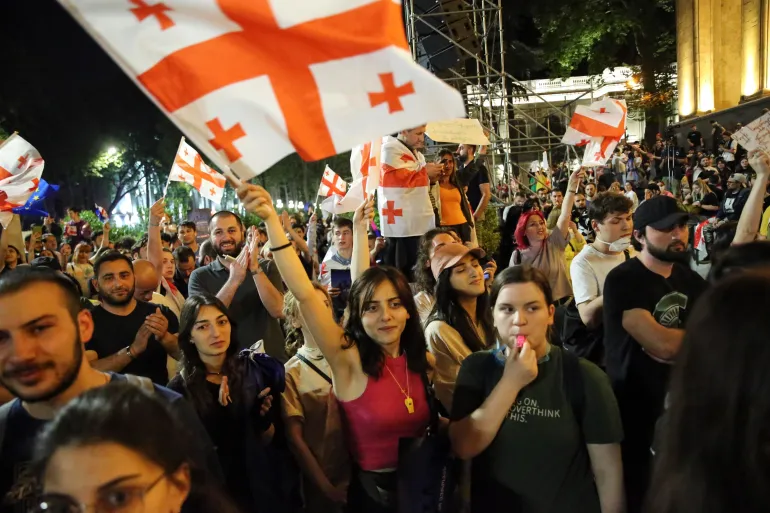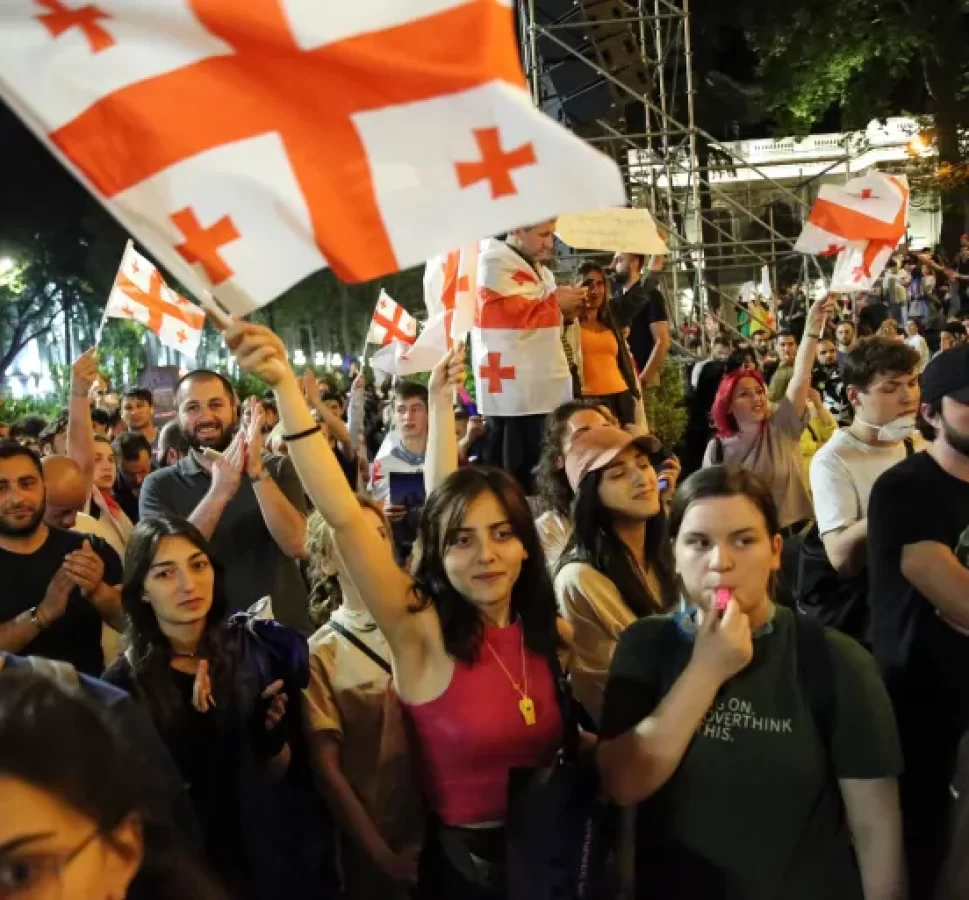
Protesters are angry at government efforts to pass a law against ‘foreign agents’ which mirrors repressive Russian legislation.
Thousands of Georgians have joined new protests in Tbilisi against a Russian-styled “foreign agents” bill, as the government insisted it would push ahead with the legislation even after some of the largest protests since independence from the Soviet Union in 1991.
Protesters began gathering at about 10.00pm (18:00 GMT) on Sunday, with many promising to spend the night outside to prevent lawmakers from entering the building for the bill’s third reading on Monday.
Georgian Prime Minister Irakli Kobakhidze said earlier he aimed to pass the bill this week and threatened protesters with prosecution.
The bill requires organisations receiving more than 20 percent of their funding from abroad to register as agents of foreign influence or face punitive fines.
Carrying European Union and Georgian flags, protesters poured onto Tbilisi’s main Rustaveli Avenue, as Georgia’s pro-EU President Salome Zurabishvili warned demonstrators to beware of “provocations”, days after some activists reported harassment and protesters were met with water cannon and tear gas.
The authorities warned they would arrest those who tried to block parliament.
But protesters appeared determined to stop the bill – which they fear will scupper Georgia’s long-held aim of joining the European Union and liken it to Russia’s 2012 “foreign agents” law, which has been used to hound critics of the government – from becoming law.
“We, as students, don’t see a future with this Russian law,” said 20-year-old Nadezhda Polyakova, who was born and raised in Georgia but is ethnically Russian.
“We stand with Europe,” she added.
“I am not going anywhere. It’s my 35th day of protesting and I will be here all night long,” said student Vakhtang Rukhaia. “I am so mad and angry.”
The protests have been dominated by Georgia’s younger generation, with many still at school or university.
“We are not scared. We are Gen Z and we are Georgian,” said 19-year-old Nino, who did not want to give her last name, worried about her mother’s job in the state sector.
The ruling Georgia Dream party initially tried to push through the law last year, but was forced to abandon the plan after a massive backlash.
Since then, the party’s billionaire founder and funder Bidzina Ivanishvili has declared NGOs the enemy within, accusing them of working for foreign governments and plotting a revolution.
The bill was revived with only one change in April. Under the latest version, NGOs, media and journalists have to register as an “organisation pursuing the interests of a foreign power” instead of an “agent of foreign influence”.
Protesters accuse the government of bringing the ex-Soviet country back into the orbit of Moscow after a 2008 war in which Russia seized the Georgian region of Abkhazia.
Georgia, which has had traditionally warm relations with the West, was granted EU candidate status in December.






